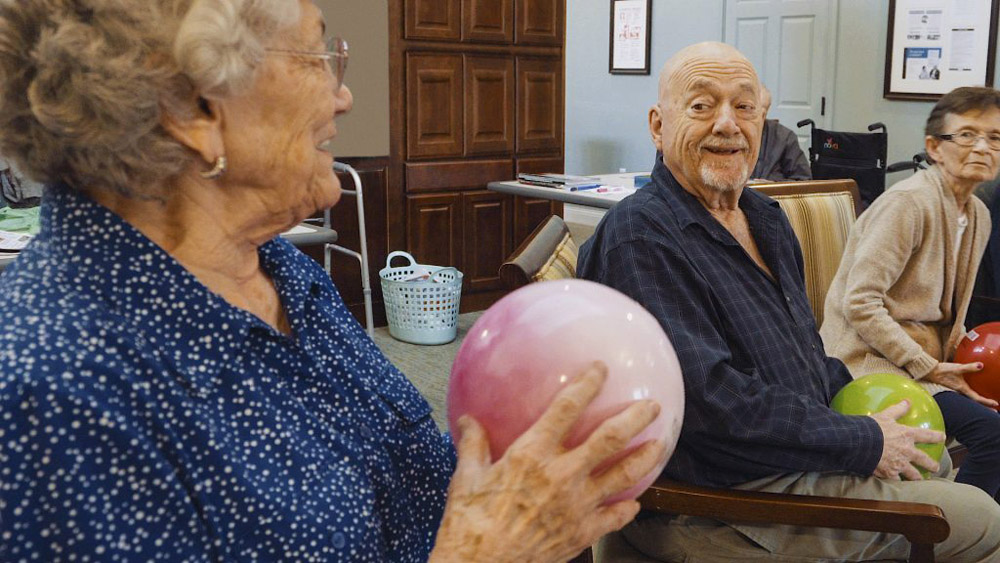Memory Care Explained: Comprehending Provider That Make a Difference
Memory care solutions have actually emerged as a necessary resource for people grappling with cognitive disabilities, such as Alzheimer's and dementia. These specialized programs not only provide safe atmospheres and qualified personnel however likewise include tailored activities that enhance cognitive involvement and psychological wellness. Understanding the variety of treatments and support group available is essential for families steering via these facility choices. As we explore the different elements that add to reliable memory care, it becomes clear that the ideal options can greatly impact the high quality of life for both locals and their families.
Introduction of Memory Care

Specialized Therapies Available
Several specialized treatments are available within memory care services, each tailored to address the unique challenges encountered by individuals with cognitive problems. These therapies intend to enhance cognitive functioning, promote emotional well-being, and enhance overall top quality of life.One favored strategy is reminiscence treatment, which encourages individuals to assess past experiences through pictures, songs, and familiar things. This technique can evoke memories, stimulate discussion, and foster links with caregivers and peers.Another reliable therapy is cognitive stimulation treatment (CST), developed to engage people in mental workouts that advertise cognitive abilities and social interaction. CST sessions commonly include puzzles, quizzes, and conversations, offering organized cognitive difficulties that aid preserve psychological agility.Art and songs treatment are likewise indispensable parts of memory care. These therapies take advantage of imaginative expression to help with communication and psychological launch, typically profiting those that might deal with verbal communication.Additionally, animal-assisted treatment has gotten recognition for its capacity to decrease anxiousness and promote social interaction with the existence of treatment animals. Jointly, these specialized therapies play a vital function in improving the lives of people with memory disability, promoting an encouraging and improving setting.
Involving Tasks and Programs
Engaging activities and programs play an essential role in memory care services, offering individuals promoting possibilities that advertise cognitive involvement and social communication. Customized to the distinct demands of residents, these tasks include arts and crafts, songs treatment, memory video games, and workouts. Such programs are created not only to boost cognitive feature yet likewise to promote a feeling of success and community (Memory Care Charlotte).Social interaction is an essential part of memory care, as it helps in reducing sensations of seclusion and depression often experienced by individuals with memory disabilities. Group tasks motivate communication and cooperation, developing an environment where homeowners can share experiences and build relationships.Moreover, engaging activities can be adjusted to varying levels of cognitive capability, ensuring that all individuals can participate meaningfully. Employee learnt memory care facilitate these programs, offering assistance and inspiration tailored per person's capabilities.Incorporating familiar regimens and interests right into these tasks can even more improve their performance, helping residents get in touch with their past and maintain a feeling of identification. Overall, a well-shaped selection of interesting tasks enhances the lives of those in memory care, adding to their total well-being and quality of life
Value of Family Members Assistance

Choosing the Right Center
Picking the right memory care center is a vital choice that calls for cautious consideration of various aspects. First, evaluate the level of care your loved one requirements. Facilities differ in their offerings, from standard assistance to specialized memory care programs customized for conditions such as Alzheimer's and various other dementias.Next, think about the atmosphere of the center. A welcoming, secure, and comfortable atmosphere can considerably affect a homeowner's health. See capacity centers to examine their tidiness, security attributes, and total ambiance. Observe team interactions with locals, as thoughtful and trained caregivers are essential to top quality care.Additionally, make inquiries regarding the center's staffing ratios and certifications. Memory Care Charlotte. Sufficient staffing warranties individualized focus and timely responses to residents' demands. Examine the schedule of tasks and programs that advertise involvement, socializing, and cognitive stimulation, as these are vital for preserving lifestyle
Often Asked Questions
What Is the Expense of Memory Care Providers?
The expense of memory care solutions varies substantially based upon area, facility kind, and degree of care needed. On standard, families can anticipate to pay in between $4,000 and $7,000 monthly - Dementia Care. These expenditures typically encompass housing, meals, personal care, and specific assistance for memory-related conditions. It is vital for households to study options extensively and consider monetary aid programs, insurance protection, and prospective lasting care intending to handle these costs properly

How Is Staff Educated to Take Care Of Memory Care Citizens?
Staff training for memory care residents is complete and specialized, concentrating on recognizing the special needs of individuals with cognitive impairments. Programs usually include education and learning on dementia-related conditions, communication methods, behavior administration, and emotional assistance methods. Training additionally emphasizes the importance of producing a safe and stimulating atmosphere. Continuous education and learning and hands-on experience guarantee staff are furnished to give caring care, cultivating dignity and advice regard for citizens while promoting their overall well-being.
Are Memory Care Facilities Licensed and Controlled?
Yes, memory care centers undergo licensing and governing oversight, which differs by state - Memory Care. These regulations ensure that facilities meet certain criteria connected to security, care high quality, staffing, and resident legal rights. Usually, state health departments or regulative bodies conduct examinations and keep an eye on conformity to secure citizens with memory problems. Prospective locals and family members ought to verify a facility's licensing standing and regulatory history to ascertain adequate care and support services are provided
Can Locals Personalize Their Living Rooms?
Yes, residents in memory care centers commonly have the possibility to individualize their home. This personalization may consist of choosing designs, setting up furniture, or presenting personal valuables, which can help create a feeling of experience and comfort. Such customization is encouraged to advertise originality and improve the emotional well-being of residents. Nevertheless, any alterations are normally based on facility standards to ensure safety and preserve a helpful environment for all citizens.
What Are the Visiting Hours for Household Members?
Checking out hours for relative are usually developed to ensure that residents obtain ideal care while keeping significant connections with their enjoyed ones. These hours may vary by facility, however commonly, visitation is allowed throughout assigned times, typically in the mid-day and early evening. Alzheimer’s Care. It is recommended for household participants to confirm specific checking out hours with the center to ensure compliance with any policies in position, as well as to boost the general experience for both residents and visitors